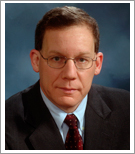225th ECS Meeting | Orlando, Florida | May 12, 2014
Nanowires: From Nanocomputing to Nano-Bioelectronics
 Nanoscience offers the promise of revolutionary advances in many areas of science and technology, ranging from electronics and computing to biology and medicine, yet the realization of this promise depends critically on the rational synthesis of unique functional nanoscale structures and their organization into well-defined devices, circuits and systems. Here we highlight the power of semiconductor nanowires as a platform material for exploring new science and technology. First, a brief review of the ‘chemical’ synthesis of complex modulated nanowires will be highlighted as a central material in nanoscience for enabling the bottom-up paradigm. Second, we describe novel deterministic assembly methods that involve one initial patterning step with all subsequent steps registered to this initial pattern, including the assembly and interconnection of individual nanowire elements into complex circuits. Third, we will exploit these advances together with a novel architecture, to address the concept of assembling a nanocomputer, first introduced by Feynman in 1959, with the realization of a programmable nanoprocessor of unprecedented complexity. Last, we will describe exciting complementary advances at the frontier between nanoelectronics and biology – “nano-bioelectronics” – including nanowire probes capable of intracellular recording and stimulation at scales heretofore not possible with existing passive electrical measurements, and an ‘out-of-the-box’ look at what the future might hold in terms of merging nanoelectronic circuits with cell networks in three dimensions to ‘synthesize’ cyborg tissues and cyborg organisms. The prospects for blurring the distinction between nanoelectronic circuitry, computation and living systems in the future will be highlighted.
Nanoscience offers the promise of revolutionary advances in many areas of science and technology, ranging from electronics and computing to biology and medicine, yet the realization of this promise depends critically on the rational synthesis of unique functional nanoscale structures and their organization into well-defined devices, circuits and systems. Here we highlight the power of semiconductor nanowires as a platform material for exploring new science and technology. First, a brief review of the ‘chemical’ synthesis of complex modulated nanowires will be highlighted as a central material in nanoscience for enabling the bottom-up paradigm. Second, we describe novel deterministic assembly methods that involve one initial patterning step with all subsequent steps registered to this initial pattern, including the assembly and interconnection of individual nanowire elements into complex circuits. Third, we will exploit these advances together with a novel architecture, to address the concept of assembling a nanocomputer, first introduced by Feynman in 1959, with the realization of a programmable nanoprocessor of unprecedented complexity. Last, we will describe exciting complementary advances at the frontier between nanoelectronics and biology – “nano-bioelectronics” – including nanowire probes capable of intracellular recording and stimulation at scales heretofore not possible with existing passive electrical measurements, and an ‘out-of-the-box’ look at what the future might hold in terms of merging nanoelectronic circuits with cell networks in three dimensions to ‘synthesize’ cyborg tissues and cyborg organisms. The prospects for blurring the distinction between nanoelectronic circuitry, computation and living systems in the future will be highlighted.
Charles M. Lieber received his undergraduate degree in chemistry from Franklin and Marshall College and carried out his doctoral studies at Stanford University, followed by postdoctoral research at the California Institute of Technology. In 1987 he assumed an Assistant Professor position at Columbia University, embarking on a new research program addressing the synthesis and properties of low-dimensional materials. He moved to Harvard University in 1991 and now holds a joint appointment in the Department of Chemistry and Chemical Biology, as the Mark Hyman Professor of Chemistry, and the School of Engineering and Applied Sciences. At Harvard, Lieber has pioneered the synthesis of a broad range of nanoscale materials, the characterization of the unique physical properties of these materials and the development of methods of hierarchical assembly of nanoscale wires, together with the demonstration of applications of these materials in nanoelectronics, nanophotonics, and nanocomputing, as well as pioneering the field of nano-bioelectronics where he has made seminal contributions to biological and chemical sensing, the development of novel nanoelectronic cell probes, and cyborg tissues.
Lieber’s work has been recognized by a number of awards, including the IEEE Nanotechnology Pioneer Award (2013); Willard Gibbs Medal (2013); Wolf Prize in Chemistry (2012); ACS Inorganic Nanoscience Award (2009); NBIC Research Excellence Award, University of Pennsylvania (2007); Nanotech Briefs Nano 50 Award (2005); ACS Award in the Chemistry of Materials (2004); World Technology Award in Materials (2004 and 2003); Scientific American 50 Award in Nanotechnology and Molecular Electronics (2003); APS McGroddy Prize for New Materials (2003); MRS Medal (2002); Feynman Prize in Nanotechnology (2001); NSF Creativity Award (1996); and ACS Award in Pure Chemistry (1992). Lieber is an elected member of the National Academy of Sciences, the American Academy of Arts and Sciences and the National Academy of Inventors, and Fellow of the American Chemical Society, Materials Research Society, and American Physical Society. He is Co-Editor of Nano Letters and serves on the Editorial and Advisory Boards of a large number of science and technology journals. Lieber also serves on the Technical Advisory Committee of Samsung Electronics. He has published over 350 papers (71,737 citations; H-index 121) and is the principal inventor on more than 35 patents. In his spare time, Lieber has been active in commercializing nanotechnology, and founded the nanotechnology company Nanosys, Inc. in 2001 and the nanosensor company Vista Therapeutics in 2007, and nucleated Nantero, Inc. from his laboratory in 2001.
